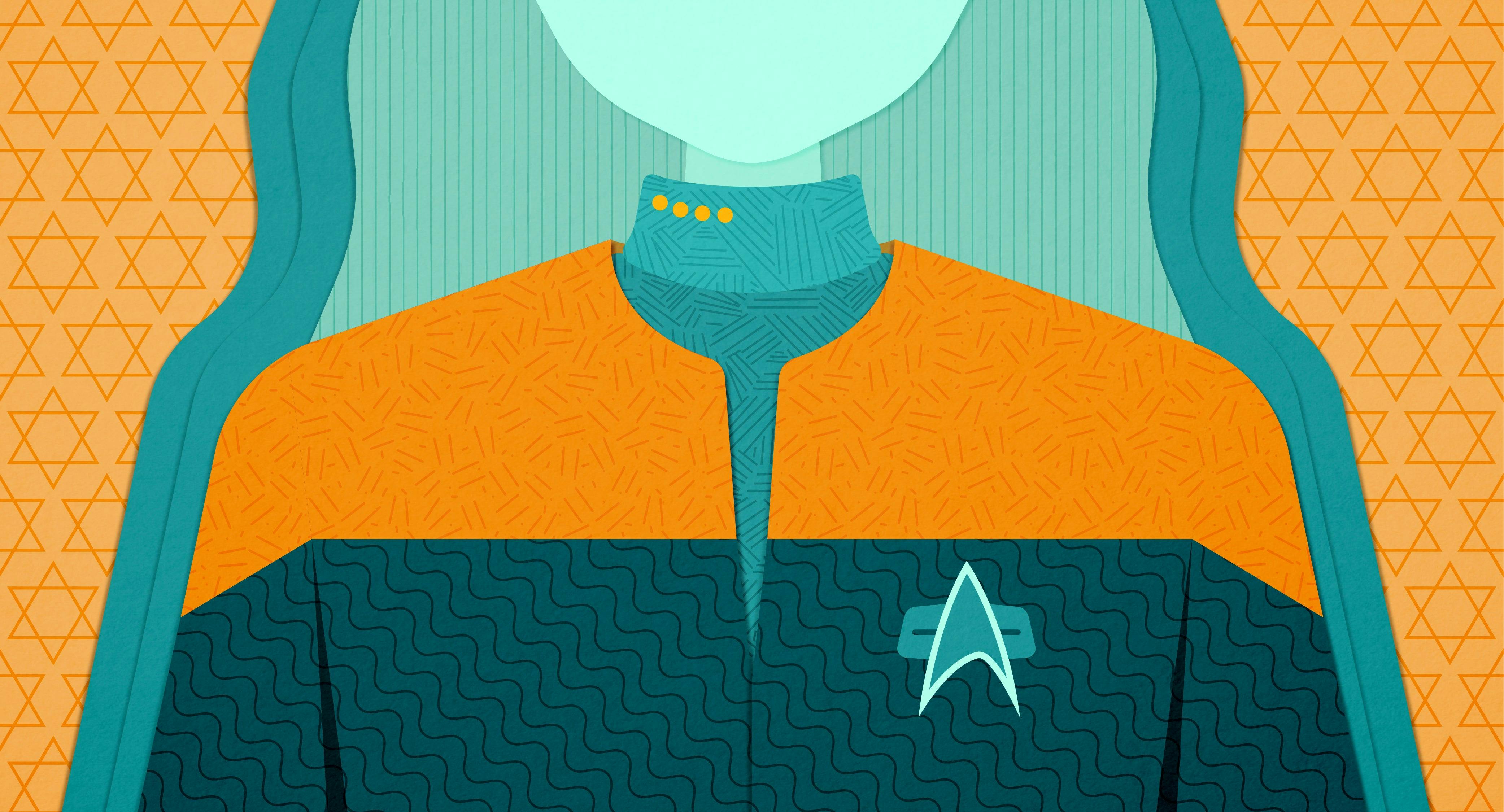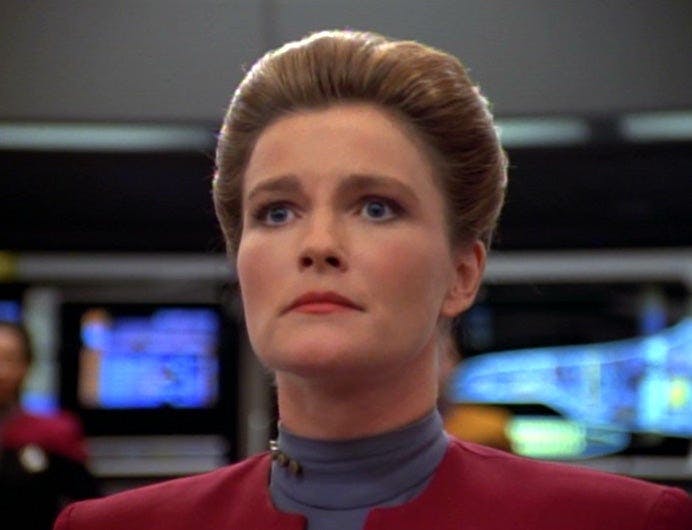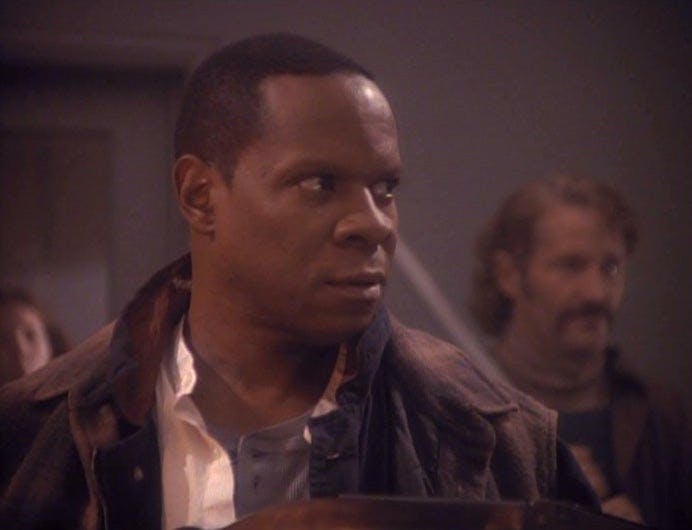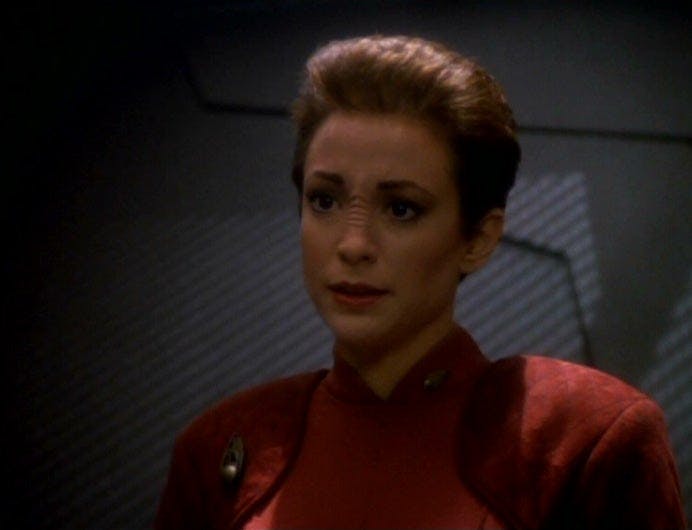Published Mar 28, 2021
I Couldn't Join Starfleet, So I Converted to Judaism
"The arc of the moral universe is long — very long, if you’re stuck in the Delta Quadrant — but we can bend it toward justice."

StarTrek.com
I thought a lot about morality in 2020. It’s been hard to be an American and not think about what we as human beings owe each other. But then, this was also the year I converted to Judaism.
It was a long time coming, and my motivations were broader than just a search for morality. At that point, I had been with my Jewish husband for almost 15 years, slowly getting drawn into the culture. I am a bookish person who enjoys learning, a good fit with the strong emphasis Judaism places on study. Judaism allows for a little pushback against God himself, which appeals to my contrarian and skeptical side. And it’s full of messages about lifting up the downtrodden, seeking justice and healing the world, which resonate with me after 18 years of writing professionally about the law.
But one does not simply sign up to become a member of the Chosen People. There is a process, involving a lot of study. I also started attending services regularly in order to learn the prayers. Doing those things exposed me to a lot of ideas about moral behavior — how we should treat each other, and what we can learn from the people described in the Torah and the books of the prophets.
As I went through this process in the summer of 2020, I came to realize that I was thirsty for some moral behavior. The pandemic had pitted individual rights against the collective good, and angry debates were everywhere. A police officer had killed a Black man in Minnesota for no clear reason, on video, and people who took to the streets to object were beaten or stuffed into unmarked vans by their own government. A depressing number of Americans felt that this was appropriate behavior — and a few used guns to make their points.

StarTrek.com
I believe we can be better than that, because I’m a fan of Star Trek, which is riddled with moral questions. As Ensign Harry Kim once observed in Voyager’s “Prime Factors”, there’s a reason why the Prime Directive is Starfleet’s General Order number one. The Prime Directive tells Starfleet officers not to interfere with the natural development of other cultures, and a ton of episodes revolve around wrestling with whether and how to apply it. Moral ideals make great TV when they butt up against differing ones and characters must work to come to an understanding over something like an unjust execution, or the rights of an android versus those of a human..
It’s not just the Prime Directive. When I first watched The Next Generation as a teenager, it seemed like every week brought a new planet that came with a moral quandary. The entire premise of Voyager (which I watched for the first time this spring) is that Captain Janeway is unwilling to let the Kazon destroy the Ocampa in order to preserve her crew’s chance of getting back to the Alpha Quadrant. On Deep Space Nine’s “Past Tense” two parter, Commander Sisko rages at the Sanctuary Districts of 21st century Earth, where the homeless are left to fend for themselves, and throughout the series Major Kira repeatedly confronts the moral fallout from the Cardassian occupation of Bajor.

StarTrek.com
In almost every one of these situations, the characters do what they believe is right, even when that clashes with what other people want, their emotional desires or their other values. A world run by dedicated, sincere people who try to do what’s right even when it’s hard? Sign me up. But it doesn’t exist. I can’t just transport up to San Francisco and enlist in Starfleet.
Instead, I enlisted with the Jews. Judaism imagines this kind of ideal future, in which righteous people enjoy a world of peace and prosperity, calling it olam ha-ba—“the world to come.” It won’t happen until the Messiah comes, so it’s our job to work toward it by healing the broken world we actually live in (tikkun olam).
Another important parallel between Star Trek and Judaism is that they hold smart people as heroes who solve problems with their minds. Jews are the original people of the book, and we have a rich tradition of studying and analyzing and debating our religious texts. Understanding all of that gives you some social status; “rabbi” literally means “teacher.” Similarly, while Trek equips its characters with photon torpedoes, its engineers and scientists save the day much more often, thinking through a problem just in the nick of time.

StarTrek.com
Those are values I want to live. I’m not saying I always succeed, by the way. Being Jewish doesn’t make me a better person; it gives me a framework for thinking about why and how to be a better person. And it gives me access to a rich history of people who have thought about it long and hard, and then debated it so they could think about it some more.
The arc of the moral universe is long — very long, if you’re stuck in the Delta Quadrant — but we can bend it toward justice. For me, being Jewish is part of that process.
Lorelei Laird (she/her) is a freelance writer specializing in the law and other difficult topics that need clear explanations. She lives in Los Angeles with her family, and you can find her at www.wordofthelaird.com.
